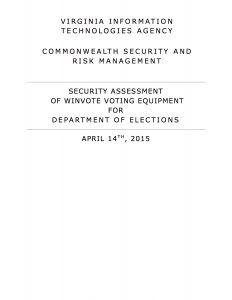- Forge-Proof Authentication Method to Revolutionize Security (Homeland Security News Wire): According to this article, scientists have discovered a method to generate an unbreakable ID using next-generation nanomaterials. The research, published in Nature’s Scientific Reports, indicates that nano-scale state-of-the-art quantum technology can be used to create devices that cannot be copied or cloned since the unique identity is stored at the atomic level, according to the article. The article states that the technology can be integrated into existing chip-manufacturing processes, enabling cost-effective mass-production. The full text of the article is here.
- Kazakhstan’s New Encryption Law Could be a Preview of U.S. Policy (The Atlantic): Kazakhstan is rolling out a “national security certificate” that will allow the government to access all HTTPS-encrypted internet traffic, according to this article. The article posits that this certificate will act as middleware, with all encrypted traffic into or out of a user’s machine routing through the certificate. Consequently, the government will have the ability to block traffic to certain sites, and even to spoof sites and edit data-in-transit, according to the article. The article states that although the U.S. government is also looking for ways to circumvent encryption, it is not likely to use a system as radical as Kazakhstan’s. Let us hope not! The full article is here.
- Foreigners Could Hack U.S. Elections, Experts Say (Who.What.Why.): Jimmy Chin writes in Who.What.Why. that experts have indicated that U.S. voting machines are vulnerable to attack. The article breaks out the vulnerabilities into two categories:
- Weaknesses in Internet Voting (“iVoting”): since 2000, numerous computer and voting experts have published studies which warn about the vulnerabilities of iVoting. A report conducted at the request of the Pentagon (editor’s note: this report was drafted in 2004) noted that Internet and PC based voting systems presented “fundamental security problems.” Despite the reports, iVoting is being used in over 30 states.
- Weaknesses in Electronic Voting (“eVoting”): here the key vulnerability is the Election Management System (“EMS”) which is used to upload and tabulate the voting results from multiple voting machines into a single repository. Some of the EMS systems are running on outdated hardware and software which opens the possibility for multiple attack vectors, exploiting widely-known vulnerabilities.
According to the article. The article also indicates the likelihood that much of the software powering these voting machines could be outdated and may not even be supported — meanwhile vendors have refused to disclose how their machines run — claiming that the code is “proprietary”. The author states that requests for comments were solicited from the three largest U.S. voting vendors: Electronic Systems & Software, Dominion Voting Systems, and Hart Intercivic — none of which responded. The full article is here.
A similar article “Voting Machine Hack Proves Your Ballot Isn’t as Safe as You Think” appeared in the Daily Dot. That article stated that eVoting machines were not secure and referenced a 2008 demonstration in which a Sequoia voting machine was hacked in seven minutes. That article can be found here.






Leave a Reply